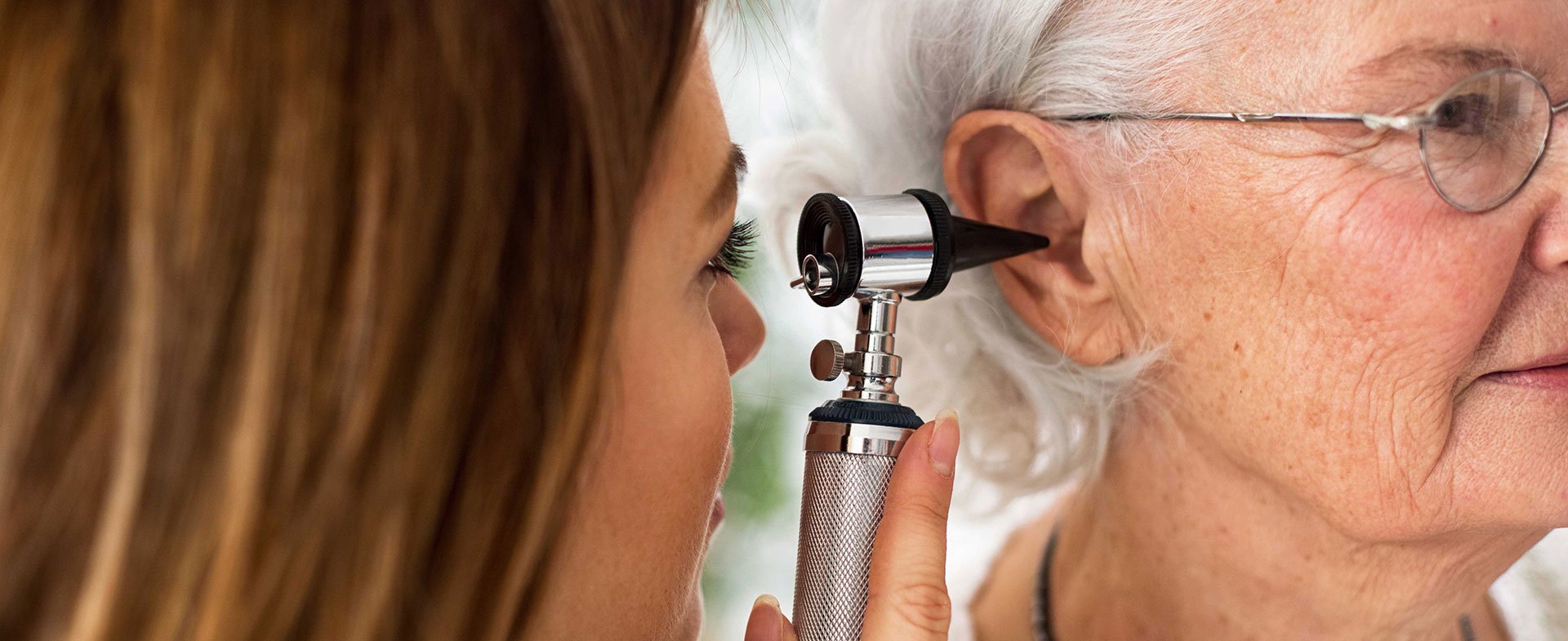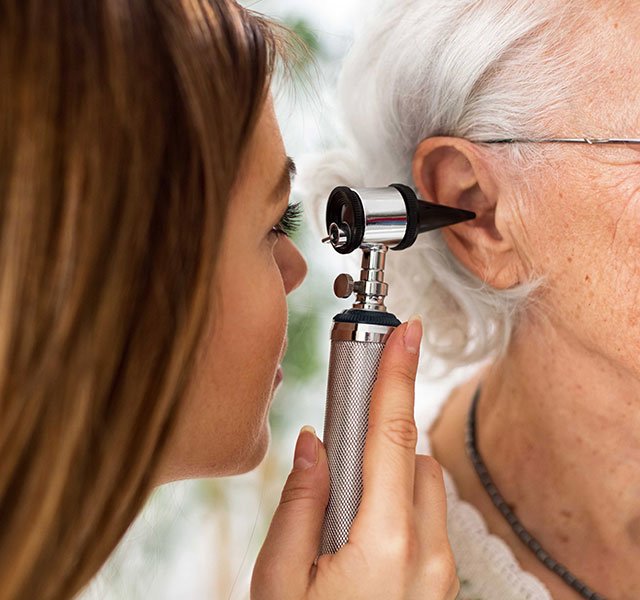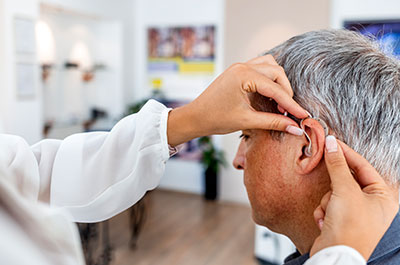An alarming number of Americans – 48 million – report some degree of hearing loss. And those figures are likely to skyrocket as the Baby Boomer generation reaches their golden years. The good news: People have more options than ever before to improve their hearing – and improve their quality of life, says Laura Brainard, M.D., an ear, nose and throat (ENT) specialist at Henry Ford Health.
Hearing is vital to connection with one’s community of friends and family. As hearing fails, many people's worlds contract as they limit social engagements, avoid group activities and even give up jobs.
Fortunately, there are technology solutions, including hearing aids and cochlear implants, which allow people to stay connected to others and fully engaged in life. While these options have been around for decades, the technology and surgical techniques have improved dramatically since they were first introduced. Initially, there was simply a focus on sound perception, then speech recognition. Now, the new frontiers of cochlear implants are hearing preservation and music appreciation.
The FDA first approved cochlear implants in the mid-1980s to treat profound hearing loss in adults. In 1990, the FDA approved cochlear implants for use in profoundly deaf children 2 years of age and older, and in 2000, the criteria expanded to include children 12 months and older. As of 2022, cochlear implants have been approved for single-sided deafness.
Here, Dr. Brainard answers a few frequently asked questions about cochlear implant technology – including what’s required to help you hear more naturally.
Q: What is a cochlear implant?
Dr. Brainard: It’s an electronic device that helps people who are hard of hearing sense sound. It is like a “bionic ear,” essentially replacing the inner ear. It is comprised of two parts — an internal electrode, surgically placed in the cochlea (the inner ear) and an external sound receiver/processor that sits either over the ear or behind the ear and connects to the internal part through a magnet.
Q: How do cochlear implants work?
Dr. Brainard: They work differently from hearing aids, which are essentially amplifiers, making sounds louder. While a hearing aid presents a stronger sound wave to the ear, it still relies on the inner ear to act as an energy transformer, turning that sound wave into an electrical signal. Cochlear implants, on the other hand, convert sound waves into electrical energy and present the electrical stimulus directly to the nerve of hearing. They essentially bypass the non-functional inner ear. The brain then recognizes those signals as sounds. In this way, a deaf or hard of hearing person can understand speech, even though their ear can no longer detect sound. While hearing aids are a good option for people who have mild to moderate hearing loss and need amplification assistance, cochlear implants are the better option for those who need louder sounds and word clarity.
Q: What does the procedure entail?
Dr. Brainard: It’s an outpatient procedure performed under general anesthesia, during which the surgeon places an electrode into the inner ear and the internal receiver under the skin a couple of inches behind the ear. The surgery is done through a curved incision behind the ear and tends to be very well tolerated, with many patients requiring only Tylenol or Ibuprofen afterward. About a month after the surgery, the audiologist activates and programs (or “maps”) the device for the first time.
Q: Who is a good candidate?
Dr. Brainard: Cochlear implants are a solid option for people who are no longer able to get by with a hearing aid. In the past, cochlear implants were available only to those with severe to profound hearing loss in both ears. Now, patients with partial hearing loss and single-sided deafness can also benefit from these implants.
In some cases, people with residual but inadequate hearing are able to use a combination of a hearing aid and an implant to maximize their hearing. The cochlear implant is typically placed in the worse ear, leaving the hearing aid for the better ear.

Improve Your Hearing With Cochlear Implants
Q: How does using a cochlear implant compare to regular hearing?
Dr. Brainard: The input is electrical rather than auditory, so It’s electrical rather than auditory, so it can take a while for the brain to adjust to the different signal. The time it takes to achieve maximal benefit varies. Most people hear something right away and then experience improvements in their hearing over time, with the most improvement happening between 3 and 6 months after surgery. Hearing may continue to improve for up to a year.
Q: How can I get adjusted to the device?
Dr. Brainard: Unfortunately, getting an implant and having it programmed isn’t like turning on a light switch. It’s sort of like learning to hear – the more you practice, the faster and farther you’ll progress. If you take out your hearing aid, and use only the implant during your waking hours, you’ll adjust more quickly.
Before you decide to get an implant, get your hearing tested to determine if you could benefit from one. Then, talk with an experienced cochlear implant surgeon and implant audiologist.
“The procedure is safe and well-tolerated, but learning to interpret the sounds created by the cochlear implant takes time,” says Dr. Brainard. “It requires commitment.”
Over time, and with regular use, patients begin to decode sounds in the environment and better understand speech – both in person and over the telephone. While results are variable, ranging from 20-96% word understanding, most people are able to hear at normal sound levels and achieve word understanding around 70%, which is a huge improvement over their baseline pre-implant levels of 0-50% in the implanted ear..
Due to the expanded criteria for cochlear implant use, it is estimated that only 2.1% of people who are cochlear implant candidates are currently benefiting from this technology. The first step is increasing awareness that there are excellent solutions for people whose hearing aids are no longer adequate.
“What I love most about cochlear implants is their capacity to transform people’s lives,” says Brainard. “They’re able to enjoy their friends and families again, participate in conversations and do the things they love to do.”
Reviewed by Dr. Laura Brainard, a senior staff physician in the Henry Ford Department of Otolaryngology/Head & Neck Surgery who specializes in otology and neurotology (diseases of the ear and lateral skullbase). She sees patients at Henry Ford West Bloomfield Hospital and Henry Ford Medical Center – Fairlane.



